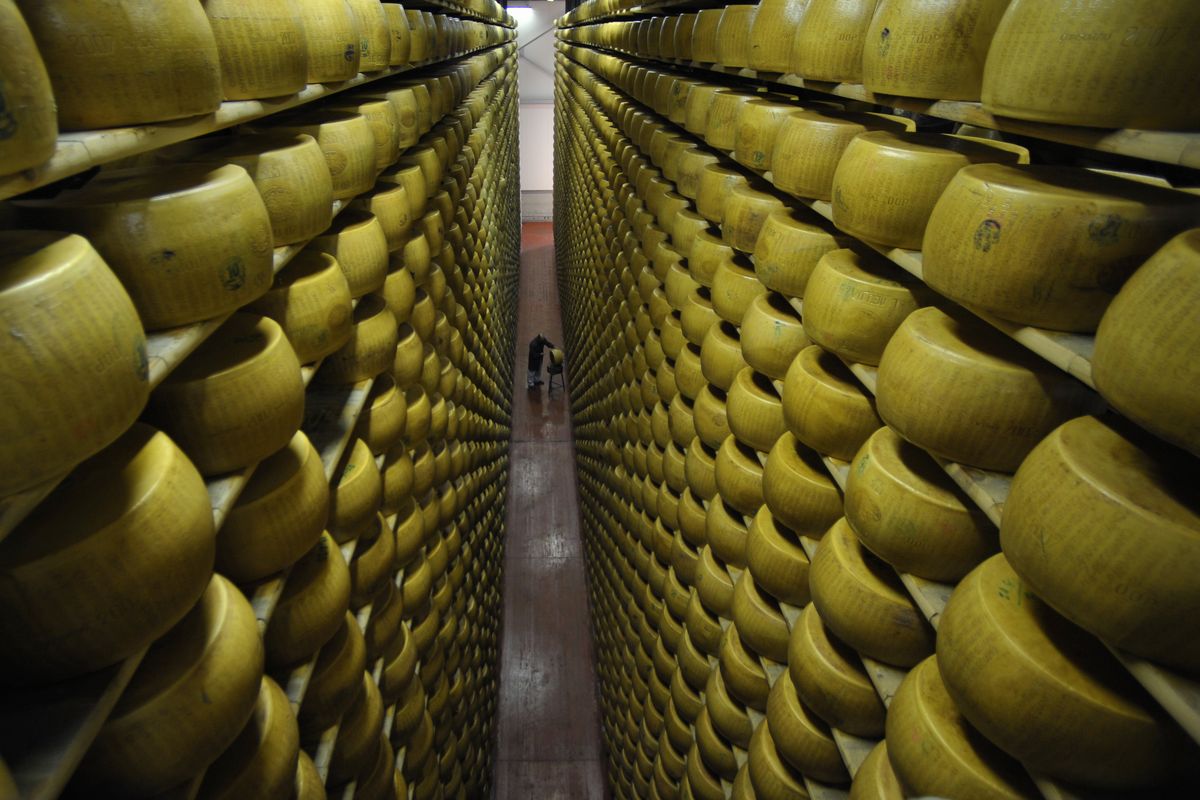Parmesan turns business wheels

MILAN, Italy – All that is golden in bank Credito Emiliano’s temperature-controlled vault is not precious metal, but something equally prized in Italy: aging Parmesan cheese.
Row upon row of 85-pound wheels of straw-colored Parmesan cheese, stacked some 33 feet high at a secure warehouse, age for as many as two years under the care of bank employees trained in the centuries-old art of Parmesan making.
The program allows Parmesan producers to pump cash into their business by using their product as collateral while it is otherwise sitting on a shelf for the long aging process. While the mechanism was not born out of the current economic crisis, dating rather from Italy’s post-World War II years, producers say it is ever more important because it ensures that credit keeps flowing during tight times.
“In times of crisis, the system is helping the cheesemakers,” said Iginio Morini, spokesman for the Parmigiano-Reggiano Cheese Consortium, which represents more than 400 Parmesan producers who are the only ones who may name their cheese “Parmigiano-Reggiano.”
A cheesemaker turns over a percentage of his production, say 25 percent, to a bank warehouse, and is given a certificate that can be presented to the bank to secure the loan, Morini said. In many cases, the cheesemaker then sells title to the cheese to a distributor while the cheese is still aging.
Typically, a Parmesan maker who produces 7,000 wheels a year might put up 2,000 as collateral for a loan. According to Morini’s calculations, each wheel is worth as much as $425. The bank would then issue a loan of 60 percent to 70 percent of the value.
The Parmesan loan business contributes just 1 percent to the bank’s annual revenue – but is critical to its image in the region, where agriculture is a key economic driver, said William Bizzarri, director of the Credito Emiliano subsidiary that deals in Parmesan deposits.
Bizzarri said Parmesan deposits are up about 10 percent due to the recession.
Inside the vaults, the temperature is maintained at 64-68 degrees Fahrenheit, with humidity above 90 percent. The forms are rotated and cleaned by machines.
Parmesan wheels lend themselves well to use as collateral because they are eminently traceable. Each form is stamped with the month and location where it was produced, and after 12 months of aging it earns the Parmesan imprint.